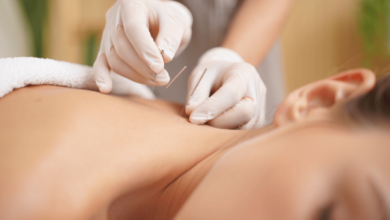The Benefits of Kids Wearing Face Masks
Benefits of Kids Wearing Face Masks: A Comprehensive Look

The COVID-19 pandemic has caused a significant shift in our daily routines, particularly in our efforts to keep ourselves and our loved ones safe. One of the measures that have been taken is the use of face masks. While it was initially believed that masks were only effective in preventing the spread of the virus from infected individuals, there is now evidence to suggest that masks also protect the wearer from getting infected. In this article, we will explore the benefits of kids wearing face masks, particularly during the COVID-19 pandemic.
Table of Contents
- Introduction
- How Masks Work
- Benefits of Masks
- Preventing the Spread of COVID-19
- Reducing the Severity of Illness
- Helping Society Get Back to Normal
- How to Choose the Right Mask for Your Child
- How to Help Your Child Adjust to Wearing a Mask
- Common Misconceptions About Masks
- Masks Are Only for Sick People
- Masks Reduce Oxygen Intake
- Masks Are Not Effective
- Conclusion
- FAQs
How Masks Work
Face masks work by preventing the spread of respiratory droplets that are released when we talk, cough, or sneeze. These droplets can contain the virus that causes COVID-19, and by wearing a mask, we can reduce the risk of spreading the virus to others. Masks also act as a barrier to protect the wearer from inhaling droplets that may be infected with the virus.
Benefits of Masks
Preventing the Spread of COVID-19
The primary benefit of kids wearing face masks is that they can prevent the spread of COVID-19. Children may be asymptomatic carriers of the virus, and by wearing a mask, they can reduce the risk of spreading the virus to others, including their family members and friends. This is especially important in areas where there are high numbers of cases.
Reducing the Severity of Illness
Studies have shown that wearing a mask can reduce the severity of illness in those who contract COVID-19. This is because masks reduce the amount of virus that is inhaled, which can lead to a milder illness. In addition, masks can also reduce the risk of complications and hospitalization.
Helping Society Get Back to Normal
By wearing masks, we can help society get back to normal more quickly. When we reduce the spread of the virus, we can lower the number of cases, which can lead to a lifting of restrictions and a return to more normal activities.
How to Choose the Right Mask for Your Child
When choosing a mask for your child, it is important to consider the fit, material, and breathability. The mask should fit snugly over the nose and mouth without being too tight. The material should be made of multiple layers of fabric, such as cotton, and should be breathable to reduce the risk of overheating.
How to Help Your Child Adjust to Wearing a Mask
Wearing a mask can be uncomfortable, especially for children who are not used to it. To help your child adjust to wearing a mask, it is important to make it fun and engaging. Let your child pick out a mask that they like, and encourage them to decorate it with stickers or markers. Make wearing a mask a part of their daily routine, and remind them of the importance of wearing a mask to protect themselves and others.
Common Misconceptions About Masks
Masks Are Only for Sick People
One common misconception about masks is that they are only for sick people. In fact, masks are effective in preventing the spread of the virus from both infected and asymptomatic individuals.
Masks Reduce Oxygen Intake
Another misconception about masks is that they reduce oxygen intake. This is not true; masks do not reduce the amount of oxygen that you breathe in. The mask filters the air that you breathe in, but it does not affect the amount of oxygen that you inhale.
Masks Are Not Effective
There are also those who believe that masks are not effective in preventing the spread of COVID-19. However, multiple studies have shown that masks can significantly reduce the spread of the virus, and in some cases, even prevent it altogether.
Conclusion
In conclusion, the benefits of kids wearing face masks during the COVID-19 pandemic are numerous. They can prevent the spread of the virus, reduce the severity of illness, and help society get back to normal more quickly. When choosing a mask for your child, it is important to consider the fit, material, and breathability. To help your child adjust to wearing a mask, make it fun and engaging, and remind them of the importance of wearing a mask to protect themselves and others.
FAQs
- Are face masks safe for children? Yes, face masks are safe for children. In fact, the American Academy of Pediatrics recommends that children over the age of 2 wear masks in public.
- How often should I wash my child’s face mask? You should wash your child’s face mask after each use. Use hot water and soap to thoroughly clean the mask.
- What should I do if my child refuses to wear a mask? If your child refuses to wear a mask, try to make it fun and engaging. Let them choose a mask that they like and decorate it with stickers or markers. Remind them of the importance of wearing a mask to protect themselves and others.
- Can my child wear a mask while playing sports? It is safe for children to wear masks while playing sports, as long as the mask does not restrict breathing or vision. However, it is important to take breaks and remove the mask if your child becomes overheated or uncomfortable.
- Can wearing a mask cause my child to develop acne? Wearing a mask can increase the risk of developing acne, particularly in areas that are covered by the mask. To reduce the risk of acne, encourage your child to wash their face regularly and avoid wearing makeup under their mask.




